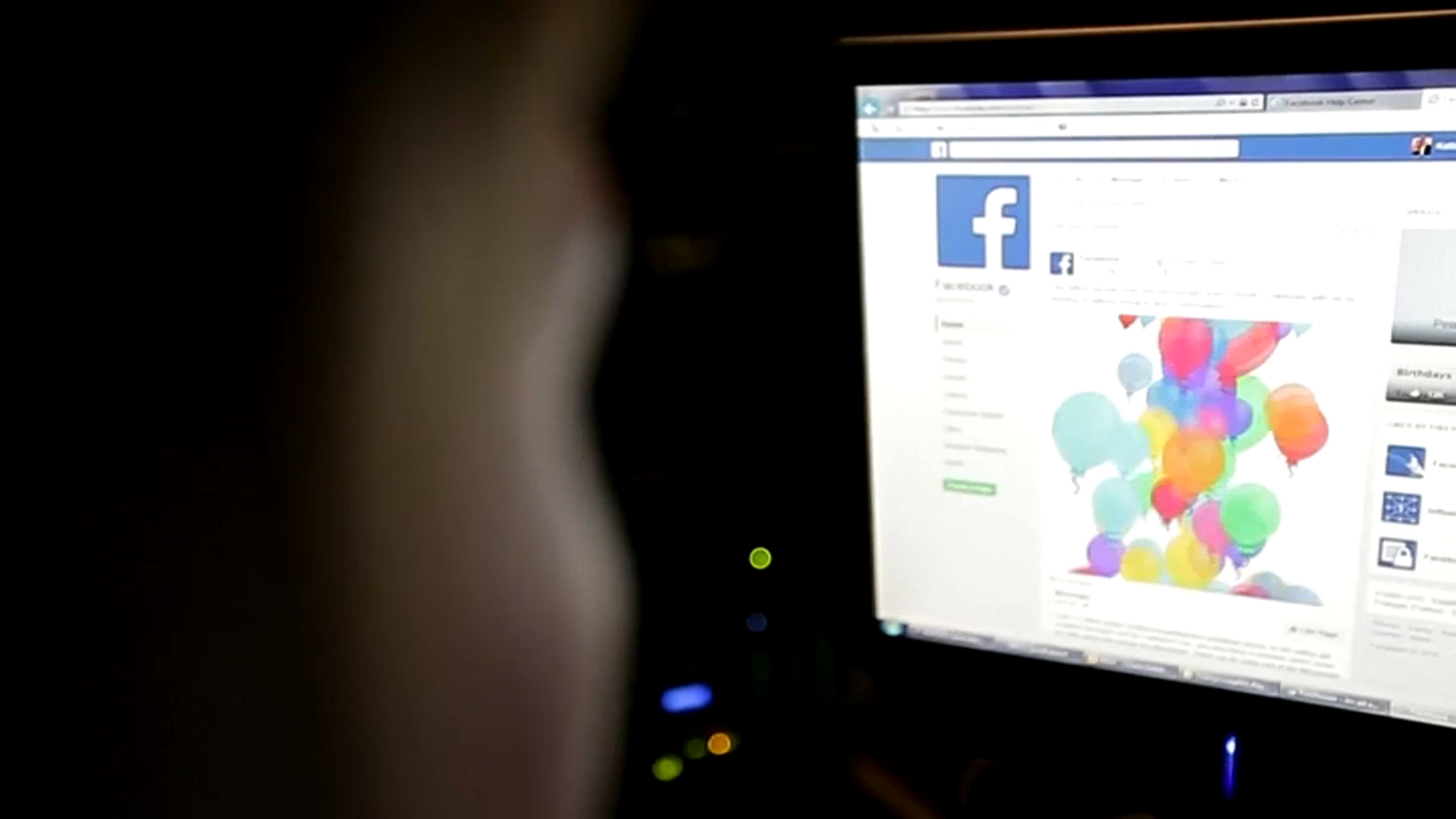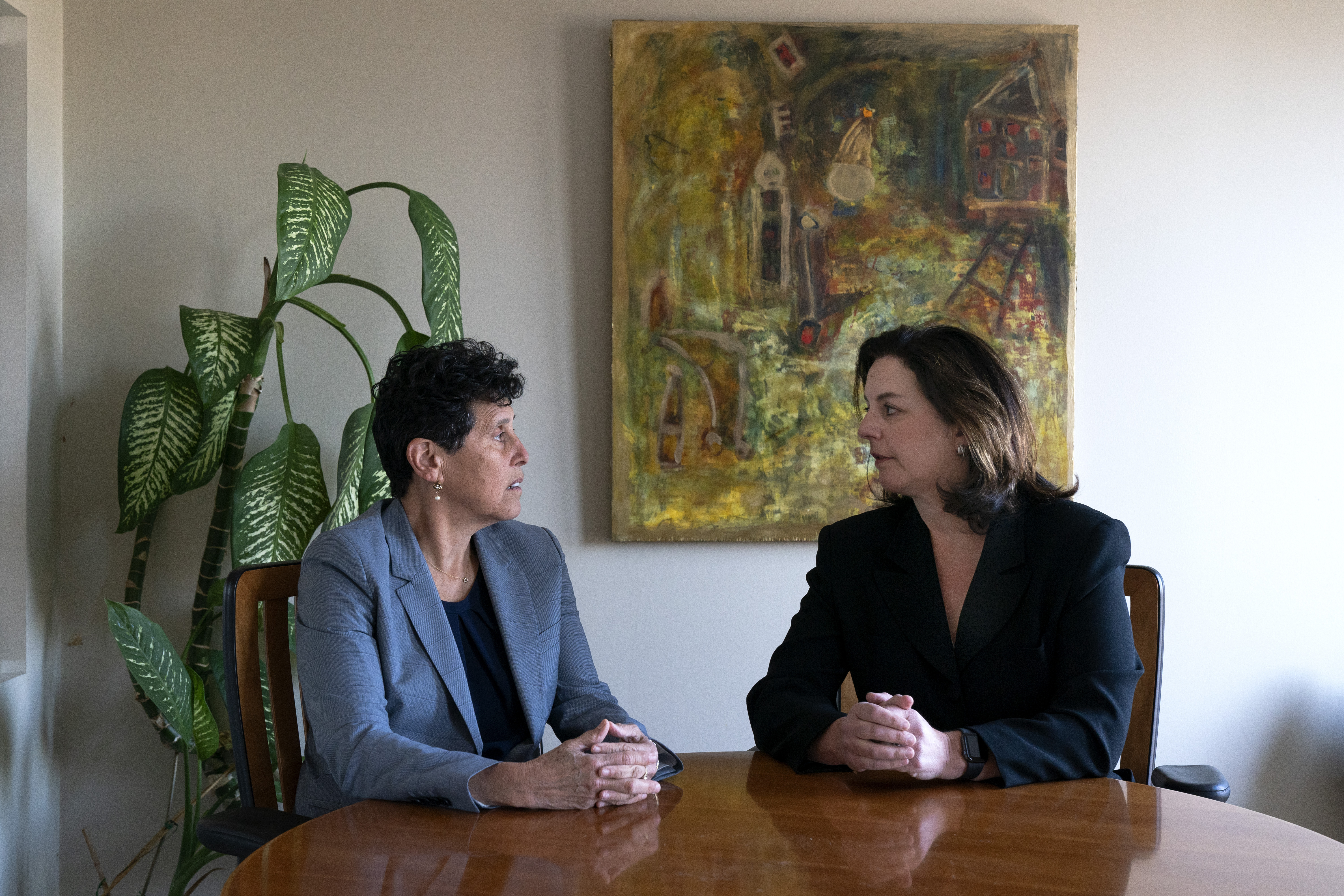When you find that special someone, or someone you hope might become special soon, it's easy to get swept up in the moment.
In the digital age, that might mean snapping a sexy photo, and sending it to someone you don't really know. But as soon as you hit send, that photo could end up being viewed by hundreds, if not thousands, of people -- and your personal information might end up exposed alongside your picture.
Maryland woman Dianna Vasquez trusted the wrong person, and is now working to warn others on the dating scene so no one else ends up in her situation.
"I definitely felt very violated," Vazquez said. "[It was] a huge invasion of privacy."
We're making it easier for you to find stories that matter with our new newsletter — The 4Front. Sign up here and get news that is important for you to your inbox.
Her TikTok video warning about where provocative pictures can end up went viral on social media. She made the video after finding a post offering nude photos of her, and other women, in online chat groups.
"In these groups, they pretty much just photo dump and video dump, all these videos and pictures, explicit videos and pictures, of women that probably was not consensual, like they didn't consent to having it spread," Vasquez explains.
She said that she did not consent to her photos being shared. She also thinks she knows who posted the photos of her, and her social media information -- out of spite.
News4 found several chat groups where members, predominantly men, share photos and other personal information of the women they've dated.
Other members in the group can then pick who they want, like a menu.
"When I saw that, I was I was shocked," Vasquez said. "Then I did feel like it was dehumanizing. It was like I wasn't even a person. I was just like an item that was up for sale."
The information sharing in these online groups can get even more dangerous, because members of the chat groups can request the home phone numbers and home addresses of the women whose photos are shared. Some members pay for the information, while others offer to trade for pictures of other women.
Vasquez says the idea of strangers in these online chats having her personal information is terrifying, and the lesson learned is a wake-up call that has put her dating life on hold.
"When you're dating someone, you know, they know where you live," she said. "They have your phone number, they have your social media handles. That is the perfect candidate to put you on these sites."
According to Detective Amanda Paris with the Fairfax County Police Department, not sharing explicit photos in the first place is the easiest way to guarantee that they never end up on one of those chat groups.
"You should never share private information or pictures to someone that you don't know," she told News4. "Easiest way to avoid it all is to not send it at all."
But she says there are ways women can fight back if they do find photos of themselves on a website or chatroom.
"So what we'd ask them to do is take a screenshot of it, be able to capture that photo on that website. It allows us to be able to use that for evidence," Paris said.
Along with the screenshot, record the URL of the website and the messages shared with it, and print them out. Then contact your local police department.
In the meantime, after you've recorded all that information about the post for evidence, you may be able to take the pictures down:
- Log into the app/site
- Find the image or video you want to report
- Click on the ••• /settings/menu options for the image
- Select “report content”
- Submit the report
You can also report the post to the website's administrator -- sometimes, they'll remove the entire chat.
And 48 states, including Virginia, Maryland and D.C., have laws against nonconsensual disclosure of sexually explicit images and videos. That means you can prosecute anyone who posts photos or videos of you without your consent.
Groups like the Cyber Civil Rights Initiative, founded in 2013, have lists of the laws different U.S. states have against what's known as "revenge porn" or "nonconsensual pornography."
That organization also provides information and legal resources to those in the U.S. who have already shared photos that are now being shared without their permission. They also link to further resources for international victims.
But it's not easy to prove in a court of law -- so the best defense is never to send explicit photos in the first place.
As for Vasquez, her viral video elicited thousands of comments from women thanking her for shedding a light on online exposure.
"It took this one viral TikTok to get us all into one place and be like, 'This is a big problem,'" she said. "Like, this is huge and it just goes so much deeper than than we even think."
Reported by Susan Hogan, produced by Ambar Rodriguez, and shot and edited by Lance Ing.




